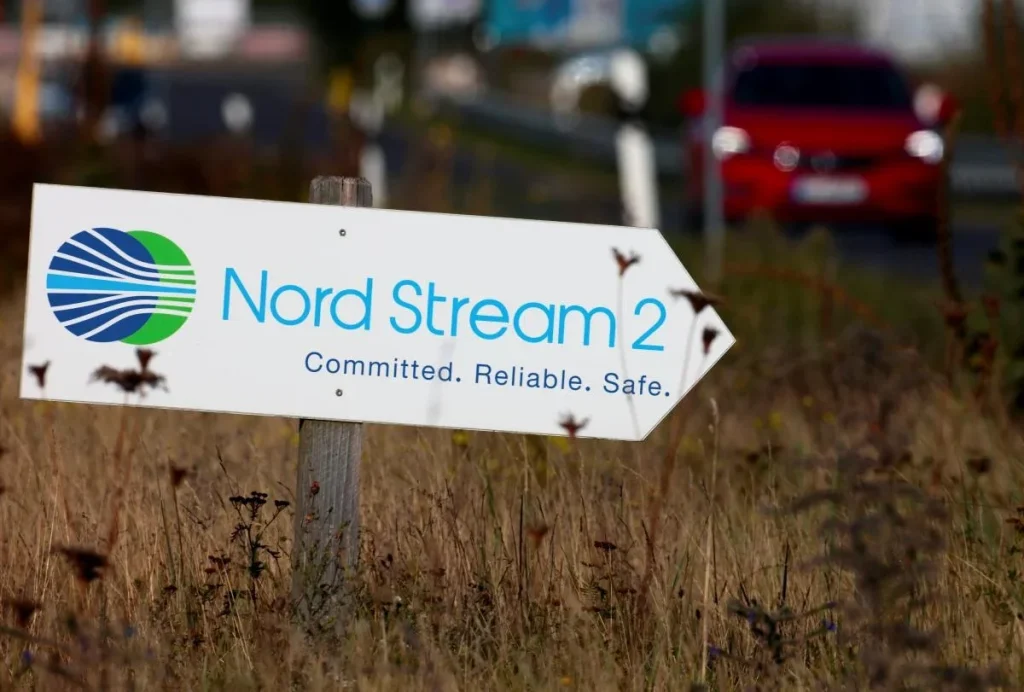France has urged Germany to reconsider its commitment to the Nord Stream 2 gas pipeline project with Russia, citing the detention of opposition leader Alexei Navalny and the harsh response to protests in his support. The call comes after Russian authorities arrested over 5,000 demonstrators in a single day, marking a second wave of nationwide protests against Navalny’s imprisonment. Speaking on France Inter radio, European Affairs Minister Clement Beaune expressed deep reservations about the pipeline, stating, “We have always said we have the greatest doubts on this project in this context.” When pressed on whether France explicitly sought its cancellation, Beaune confirmed, “Indeed, we have already said this.”
Nord Stream 2 Under Scrutiny
The Nord Stream 2 pipeline, a multi-billion-euro initiative to transport Russian natural gas directly to Germany via the Baltic Sea, has long been controversial. Critics, including the United States and Poland, argue it will deepen Europe’s reliance on Russian energy, compromising energy security. Despite U.S. sanctions that stalled progress for nearly a year, German Chancellor Angela Merkel has defended the project, with construction resuming in December. The pipeline’s near-completion status has heightened tensions, as France now joins calls to reassess its viability in light of Russia’s political actions.
Navalny’s Detention Fuels Tensions
Navalny, a prominent critic of Russian President Vladimir Putin, was detained in mid-January 2025 upon returning to Moscow, facing a trial that could result in years of imprisonment. The crackdown on his supporters has drawn international condemnation. France and Germany previously criticized Russia in October 2024, demanding sanctions after the Organisation for the Prohibition of Chemical Weapons confirmed Navalny was poisoned with the Russian-developed nerve agent Novichok. Russia dismissed these accusations, with its UK embassy claiming Navalny is “not a political prisoner” but a convicted criminal from a 2014 fraud case, using his status for political gain.
Beaune highlighted that additional sanctions are being considered, noting, “Sanctions have already been imposed, but they will not be enough.” He acknowledged that halting Nord Stream 2 is ultimately Germany’s decision, as the pipeline terminates there, but suggested it as a potential leverage point, stating, “The Nord Stream option is among those under consideration.”
Balancing Energy and Ethics
The debate over Nord Stream 2 reflects broader concerns about balancing energy needs with geopolitical and ethical considerations. While the pipeline promises economic benefits, its critics argue it strengthens Russia’s influence at a time when its human rights record is under scrutiny. The EU faces a complex challenge, as member states weigh energy security against the need to address Russia’s actions. France’s stance signals a push for a unified European response, with the Navalny case serving as a catalyst for reevaluating ties with Moscow.
Looking Ahead
As protests in Russia persist and Navalny’s trial looms, the international community is closely watching Germany’s next move. The Nord Stream 2 project, nearly complete, remains a flashpoint in EU-Russia relations. France’s call for its cancellation underscores the growing tension between economic interests and political principles, setting the stage for critical discussions among European leaders.






